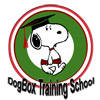 |
||||||
| |
Home | About Us
|
Services |
Products |
Pet Identification |
Pet Health Insurance | | Breeder News | News | Articles | Tick & Flea Control | Dog Training | Dental Health | | Cat & Dog Vaccinations | Cat & Dog Sterilisations | | Chew on This Newsletter | Links | |
||||||
|
House-training Your New Puppy |
||||||
|
Fouling in the house is a major cause of
dogs been given up by owners to rescue centres. There are
various causes of elimination problems but the most frequent
cause is improper, ineffective or incomplete house-training. Appropriate and effective house-training consists of a combination of constructive confinement, scheduled feeding, vigilant supervision and in giving the puppy enough opportunities to eliminate outdoors. Owners need to watch for tell-tail signs that the puppy may need to relieve himself. These are circling, sniffing at the floor, pawing at the ground, starting to squat, whining or stopping whatever else it was doing. A good guideline is that puppies relieve themselves first thing in the morning, immediately after eating or drinking and 20 minutes later again, after play or other exciting activity, after waking from naps and/or last thing at night. The maximum time a puppy can hold its urine is its age in weeks divided by three. For example a 12 week puppy should be expected to hold for a maximum of 4 hours (12 weeks / 3 = 4 hours). Some puppies show more or less control of elimination with small breed dogs usually having less control than larger dogs, i.e. small dogs have less control of their bladders and bowels, so one would take a smaller dog out more often. A puppy will normally eliminate within the first minute of going outside. Often puppies will need to be let out every two or three hours in the night. In order to insure that your puppy doesn’t mess inside, take him out every 45 to 60 minutes, gradually lengthening the time between outings until you reach his age approximate limit. There are likely to be accidents. When these occur try to interrupt the activity with a loud noise like a clap and then take the puppy outside immediately. Once through the door let your manner relax and become friendly and encouraging. This should relax the puppy enough to continue eliminating outdoors. Praise the puppy enthusiastically immediately after it has finished eliminating outdoors. Clean the indoor soiled area thoroughly with a non-ammonia based odour removing product so that he or she is not encouraged to use the area again. Never rub a puppy’s nose in the mess or hit the puppy for messing in the house. This is abusive and is likely to have negative consequences. Ineffective or incomplete house-training is sometimes worsened by the fact that owners are not home during certain periods such as during the day or when on holiday. During these times a puppy is often locked in-doors. It is wise to have a safe place like a covered outside play pen or secured area where the puppy can be kept or have an informed person available so that the puppy can be supervised during this crucial time. Download this chart to help you understand and plan the puppy’s eliminating schedule. Breaze
Also see: |
||||||
 |
||||||
| © 2011 - 2013 Vet Hospital Port Shepstone - www.vet-portshepstone.co.za | ||||||
